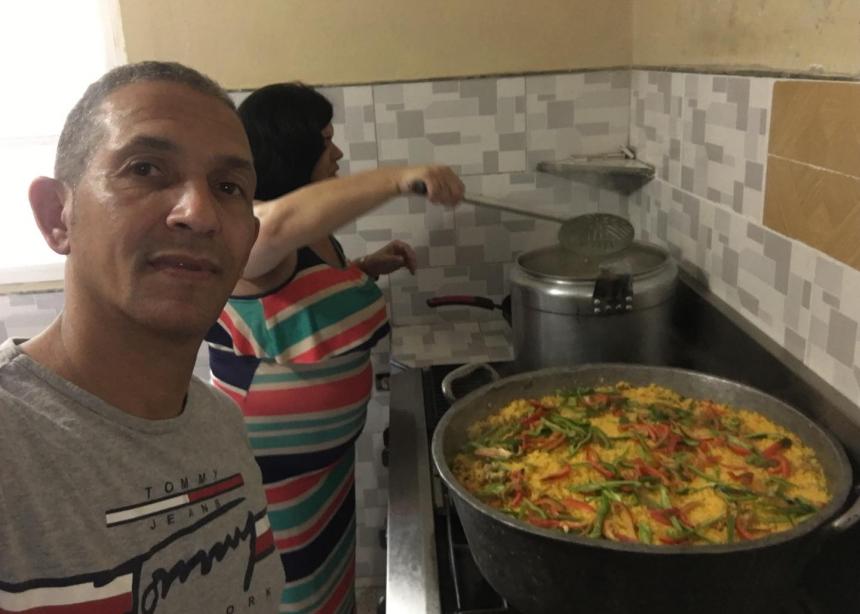These weeks of physical distancing, including Easter, have forced us to think more about what it means to be the church. We appreciate the phrase “the church has left the building!” We identify with Jesus’s disciples on Easter, huddled behind locked doors, filled with fear and despair. I have begun thinking about the church in these days using two more images from Jesus.
In the Sermon on the Mount, Jesus tells his followers that in building the Kingdom of God we are to be like salt, where a little salt sprinkled through some other food makes it all taste better. But we don’t want any lumps of salt in the bread or in our meat dish! Sometimes I wonder if our congregations seem more like lumps of salt, or whether we really are sprinkles of salt throughout our communities and neighbourhoods.
Similarly, Jesus compared building the Kingdom of God to a little bit of yeast that is sprinkled throughout a whole lot of flour. No lumps are wanted here either! Certainly not in the Easter bread (paska) that I was happy to make a few days ago.
Sometimes we long for the nurturing community of our own congregation. Like everyone else, I love seeing everyone’s faces on Zoom when we connect together these days. We are hungry to be gathered together.
And yet we are forced to be a scattered church, sprinkled here and there like salt and yeast.
I am reminded of the stories I hear from Ethiopia, about how they grew from 5,000 to 34,000 members in the days and years of persecution in the 1980s. They were not allowed to meet in groups larger than five people, so they met in very small cell groups in homes for Bible study and prayer. They emerged stronger than before these rules limiting religion were enforced, even with their leaders jailed for years. The principles of church growth that stood them well in those days continue to mean they are one of the fastest growing Anabaptist churches in the world today. They are salt; they are yeast.
I also love to hear the stories about how different church leaders are responding to needs around them in these days of lockdowns around the world.
Luis Hernandez, leader of the Brethren in Christ Church in Cuba, has been sending me pictures of how he and his wife cook huge pots of food in their home kitchen and share it with hungry people around them. They are salt; they are yeast.
In Ohio, a local business has turned to the Amish community to sew thousands of pieces of personal protective equipment for its medical frontline workers. In Kitchener, Ont., I have joined a Facebook group that is also sewing for medical workers, a group that started by connecting church-based sewing groups with a local fabric store. There are groups of people like this sewing in most communities across Canada and the United States. They are salt; they are yeast.
The church is the church, whether gathered or scattered. Being scattered sometimes makes it more possible to be salt and to be yeast. These are hard times but, just like in Ethiopia, my prayer is that the church will emerge stronger and saltier than we were before: “You are salt for the earth, O people / Salt for the Kingdom of God / Share the flavour of life, O people / Life in the Kingdom of God!”
Arli Klassen is working from home in Kitchener, Ont., for Mennonite World Conference, baking with yeast whenever a good source is found.
This article was updated on April 30, 2020 to include the main photo.
Related stories:
Testing the ties that bind
‘Peace be with you’
Work-play-rest
Read more The Church Here and There columns:
Being the church in risky times
Partners in the body of Christ
'We discuss and we divide'
Canadian turkey and Salvadoran turkey
We belong to each other




Add new comment
Canadian Mennonite invites comments and encourages constructive discussion about our content. Actual full names (first and last) are required. Comments are moderated and may be edited. They will not appear online until approved and will be posted during business hours. Some comments may be reproduced in print.